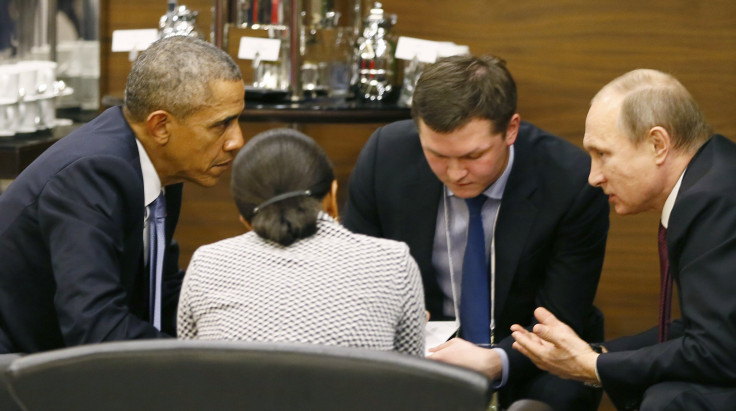Global Issues Easier To Solve When US, Russia Work Together: Obama Advisor

It is easier to resolve difficult global issues when Russia and the United States work together, according to an Obama advisor.
Ben Rhodes, the deputy national security adviser for strategic communication for the U.S. president, said both countries have certain issues in common, such as the fight against terrorism. However, the U.S. has difference of opinion with Russia in issues like Ukraine. He added that while there is some progress in the situation in Ukraine, the Minsk agreements need to be completely implemented.
“On Syria, we, I think, share a common ground with respect for the need for the world to unite against ISIL (ISIS) and with respect for the need for political transition in Syria,” Rhodes told Russia's Tass News Agency. “We’ve been able to work together constructively to the Vienna process and recently in New York to get the UN Security Council resolutions.”
Rhodes reminded that Russia and the U.S. have different thoughts about Syrian President Bashar Assad’s future. However, Obama wants to find a way to solve such issues to make progress on important global challenges, he added.
Asked why Secretary of State John Kerry travelled twice to Russia when he could have talked over the phone, Rhodes said that certain issues can be understood better when two sides talk face to face.
The U.S. diplomat believes the U.S. president and his Russia counterpart understand each other’s point. “I think they were able to gain a better understanding of each other’s positions and to try to identify areas on Syria where we could work to add momentum to the political process,” Rhodes said.
Meanwhile, the head of the State Duma Foreign Relations Committee Aleksey Pushkov said Europe should not consider Russia as a threat. The Russian lawmaker believes Europe must understand the real threat is Islamic State group.
“The real, unimaginable threat comes from the Middle East and it is Islamic State - people in the EU are starting to understand this,” RT quoted Pushkov as telling Rossiiskaya Gazeta.
© Copyright IBTimes 2025. All rights reserved.





















